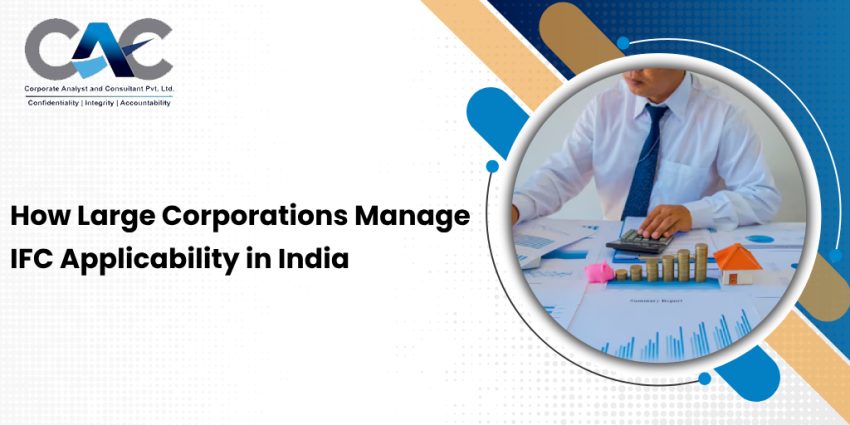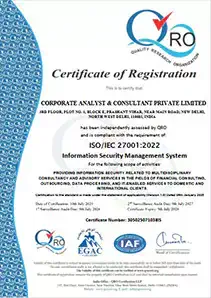CAC specializes in helping organizations seamlessly implement and manage IFC applicability in India. Internal Financial Controls (IFC) constitute an essential component of the corporate governance in India especially since the Companies Act, 2013 has introduced them. IPC needs many large-scale international companies have well-diffused multi-geography operations, and IPC applicability is not limited to legal compliance, but is also a strategic imperative. A very specific IFC structure does not only protect the company funds but also helps to avoid fraud, ensure the correct financial reporting and compliance with the regulations. With enhanced accountability and transparency, investor and stakeholders will have greater confidence as IFC becomes an efficient organisation. Therefore, compliance and sustainable business growth requires IFC in large organisation.
How Do Big Companies Manage IFC Applicability in India?
Establishing a Robust IFC Framework
In large companies, IFC is adopted by enacting elaborate structures that lay down a policy of control, means of managing risk, and uniform operating parameters. These models focus on all areas of critical concern such as financial reporting, operational efficiency, IT security and adherence to laws and regulations. Standardizing different processes in various departments and subsidiaries helps the companies to enforce consistency, accountability, and transparency within the business. Robust IFC structure can not only reinforce the internal governance but also facilitate reduction of risks, increase financial accuracy, and aligning operations to business objectives. It is the source of successful management controls and constant improvement within a complex corporate set up.
Leveraging Technology and Automation
The large companies cannot solely rely on manual processes to manage IFC since their size and complexity are large. They are moving toward the utilization of technology integration such as complex or sophisticated ERP systems, AI-based risk management tools, and automated compliance monitoring tools. Such systems give immediate information on financial transactions and allow the detection of irregularities in real-time and make reporting easier. Automated work leads to a decrease in error occurrence, increases the accuracy of data and efficiency in meeting IFC controls. Incorporation of technology in the process of IFC helps large corporations to have greater transparency and control of their extensive networks of operations thus making internal controls more robust as they are now reliable, cost effective and comply with global best practice.
Role of Audit Committees and Senior Management
Senior management and audit committees are critical to ensuring that the IFC is effective in large enterprises. Audit committees monitor the performance of controls, investigate audit reports, and formulate vulnerabilities and follow up the necessary actions in case of the occurrence of a vulnerability. Senior management, in turn, helps promote compliance culture by integrating IFC principles into standard organizational procedures and decision-making processes. In their tenure of office, IFC has been viewed as a champion of good governance and operational discipline rather than a mandate. Responsible monitoring helps companies to develop responsibility, confidence amongst their investors, and their long-term economic sustainability.
Continuous Monitoring and Testing
To keep working IFC frameworks in large enterprises, they must be tested and monitored occasionally. This involves the conduct of regular external reviews, internal audits and systematic evaluation of critical controls. By testing the processes, businesses can identify flaws at an early stage, correct them and prevent such flaws turning into major operational or financial issues. Solutions provided by IFC will also ensure that they adjust to changes in their business environment and regulations due to continuous monitoring. This initiative in the form of a proactive approach, reduces risks and makes things more transparent as stakeholders have the reassurance that the company possesses strong internal controls and effective governance.
Also Read: IFC Applicability for Companies

















